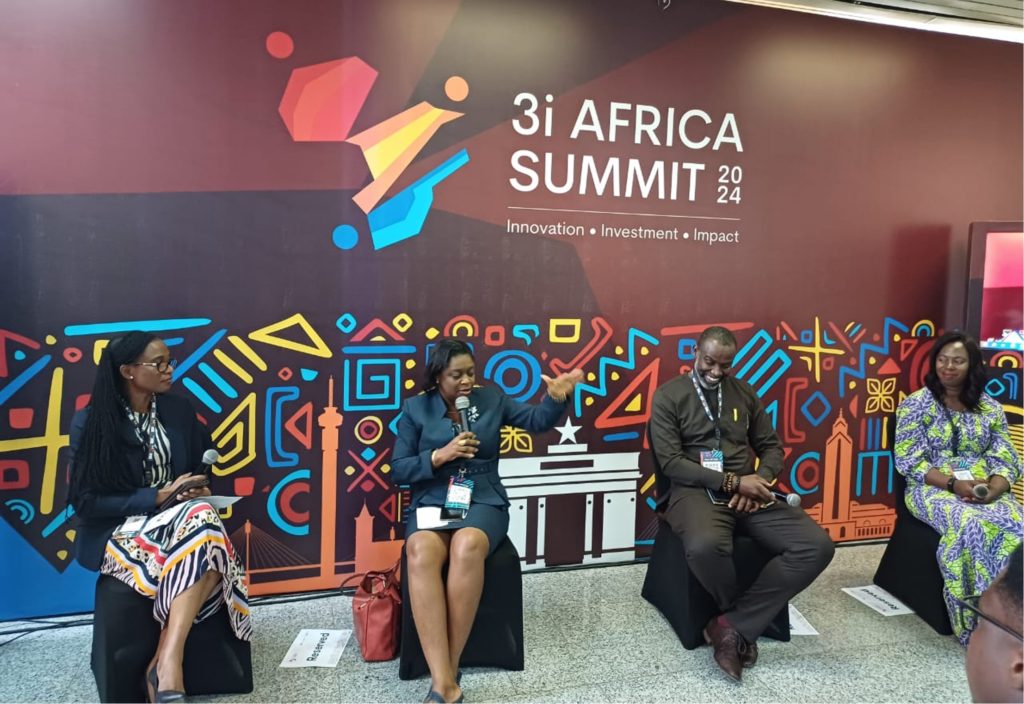GIPC advocates local service utilization in proposed Act amendments … boosting Ghanaian businesses and economic growth

Naa Lamle Orleans-Lindsay, Head of the Legal Division at the Ghana Investment Promotion Centre (GIPC), has asserted that the proposed amendments to the GIPC Act, 2013 (Act 865), currently under parliamentary review, aim to encourage businesses to utilize local services instead of resorting to global outsourcing. This strategic shift is intended to bolster domestic revenue and safeguard local businesses.
Ms. Orleans-Lindsay underscored the significance of the GIPC Act, 2013 (Act 865), and the Technology Transfer Agreements (TTAs) to Ghana’s economy, as they provide the regulatory framework for Ghanaian companies to access critical services from abroad, thereby facilitating their growth and expansion.
Speaking at the opening of the 3i Africa Summit on the dialogue on Technology Transfer Agreements and its impact on Economic Growth by GIPC, she said “The GIPC Act as well as the regulation, one of the main purposes there is to ensure that companies in Ghana, whether they are local companies, foreign companies always ensure that they look first within Ghana for services. This does not apply to goods, the TTAs apply to only services, so we encourage companies to look inwards, look within Ghana, if they are not available then they can go out of Ghana to receive the services, so we encourage companies to explore Ghanaian companies who can provide top-notch services to them before seeking to get them outside the country.”
She elaborates on the objectives of the GIPC Act and its regulations, emphasizing the priority placed on sourcing services domestically. While acknowledging the need for global services when local alternatives are unavailable, she encourages companies to explore Ghanaian service providers first.
Ms. Orleans-Lindsay also highlighted the benefits anticipated from the amended GIPC law and reformed TTA regulations, including increased foreign direct investment (FDI) through partnerships, joint ventures, and technology transfers with local companies.
“When the TTAs landscape is clear, transparent and easy, many companies outside Ghana will have partnerships and joint ventures with local companies, provide them with technology they need to do their services, some may also set up in Ghana because the experience has been positive and FDI is increased through more companies setting up in Ghana to provide services to Ghanaian companies.”she said.
Regarding the timeline for the amended Act’s readiness, Ms. Orleans-Lindsay mentions ongoing engagements with the Finance Committee of Parliament and anticipates expedited progress, though exact timing remains contingent on parliamentary processes.
Additionally, she calls upon Ghanaian businesses to ensure compliance with the GIPC Act, 2013 (Act 865), and Technology Transfer Regulations (L.I 1547) by registering their TTAs with the GIPC.
The proposed reforms to the GIPC Act encompass various aspects, including registration procedures and thresholds for foreign companies, as well as expanded access to sectors previously restricted to Ghanaian entities. Regarding TTAs, efforts are underway to streamline registration processes, enhancing their effectiveness and value for enterprises.
Nana Kofi Asare, representing Scancom PLC (MTN Ghana), emphasized the significance of Technology Transfer Agreements (TTAs) for FinTech startups. He highlighted how these agreements would enhance knowledge transfer and know-how, particularly beneficial for emerging businesses in the FinTech sector.
Valerie Ackwerh, from Hollard Ghana Holdings Ltd, noted that TTAs have the potential to address Ghana’s skills gap effectively. She emphasized that such agreements represent a mutually beneficial arrangement for all parties involved, creating a win-win situation.
By Eugene Davis








